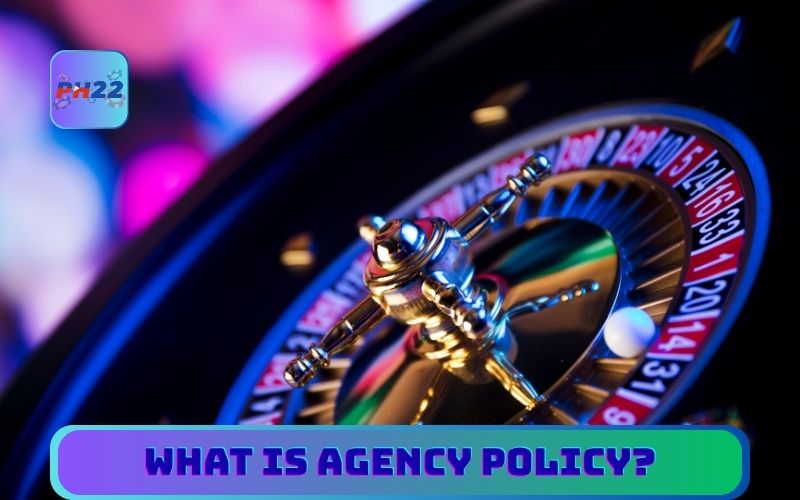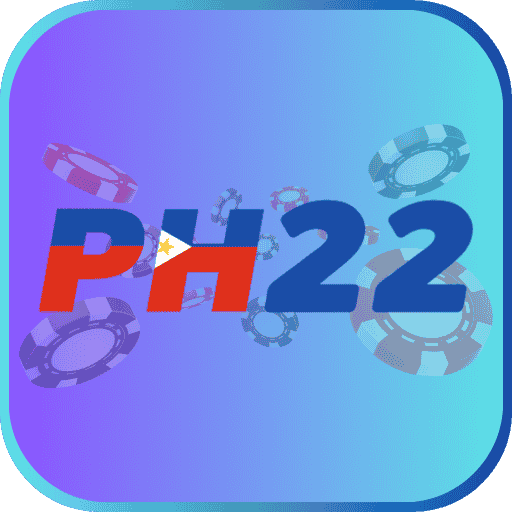PH22 Agency Policy – Official Standards & Guidelines
The PH22 Agency Policy serves as the official framework that defines how every team member, affiliate, and partner operates within the PH22 ecosystem. By establishing clear standards for communication, performance, responsibility, and data protection, PH22 ensures consistent quality and a unified brand experience across all channels. This policy not only strengthens operational efficiency but also upholds the professionalism and integrity that PH22 is committed to delivering.
This comprehensive guide explains what an agency policy is, why it matters, how to write one, and how organizations can optimize it for productivity, compliance, and long-term growth.
What Is Agency Policy?

An agency policy is a formally documented set of rules, guidelines, standards, and procedures that govern how an agency operates. It defines the behaviors, expectations, processes, and responsibilities required from staff, contractors, partners, and management teams.
A strong agency policy ensures:
-
Organizational consistency
-
Legal and regulatory compliance
-
Transparent workflows
-
Accountability
-
Efficiency in decision-making
-
Reduced risks and internal conflicts
In many industries—such as marketing agencies, PR agencies, government agencies, creative agencies, and staffing firms—the agency policy acts as the backbone of internal operations.
Why Agency Policy Is Essential for Modern Organizations
A clear agency policy is not just documentation—it’s a strategic asset. Below are the key reasons it matters:
1. Ensures Consistency Across All Departments
With written procedures and behavioral guidelines, all employees follow the same standards. This improves the quality of output, customer service, and internal communication.
2. Reduces Legal and Compliance Risks
Sectors such as healthcare, finance, insurance, digital advertising, and government agencies are heavily regulated. Agency policies ensure compliance with industry laws, privacy protection, and ethical standards.
3. Builds a Strong Organizational Culture
A well-crafted agency policy shapes company culture by outlining expectations for communication, teamwork, leadership, and employee behavior.
4. Protects Both Employees and Management
Clear policies reduce disputes, misunderstandings, and operational mistakes. They serve as documentation in case disciplinary actions or legal issues arise.
5. Improves Productivity and Efficiency
When employees know exactly how tasks should be done and what steps to follow, work becomes streamlined, faster, and more predictable.
Core Components of an Effective Agency Policy
A successful agency policy framework typically includes the following sections:
1. Mission and Vision Statement
Defines the agency’s purpose, values, long-term goals, and operational priorities.
2. Scope and Applicability
Explains who the policy applies to—employees, partners, contractors, interns, or entire divisions.
3. Code of Conduct
Outlines behavioral expectations, ethical rules, communication guidelines, and professionalism standards.
4. Confidentiality and Data Protection Policies
Covers handling of client information, GDPR or privacy compliance, cybersecurity protocols, and use of company technology.
5. Employment and HR Policies
Includes attendance, remote work rules, dress code, reporting structure, equal opportunity guidelines, and dispute-resolution procedures.
6. Operational and Workflow Procedures
Describes how teams carry out tasks, project management standards, approval processes, and performance measurement.
7. Quality Assurance Guidelines
Ensures consistent quality of deliverables, audits, and client satisfaction.
8. Financial and Billing Policies
Covers pricing, invoicing, purchasing, reimbursements, budgeting, and financial accountability.
9. Risk Management and Compliance
Details how the agency handles emergency situations, legal obligations, and safety procedures.
10. Review and Revision Timeline
Outlines how often the agency policy is updated and who is responsible for revisions.
Types of Agency Policies Used Across Different Industries
Different agencies require different policy structures. Here are examples across key sectors:
Marketing and Advertising Agencies
-
Creative workflow guidelines
-
Client communication protocols
-
Intellectual property protection
-
Social media guidelines
Government Agencies
-
Public service regulations
-
Procurement and bidding procedures
-
Ethics compliance
-
Accountability and transparency standards
Real Estate Agencies
-
Agent licensing requirements
-
Contract-handling procedures
-
Client information protection
-
Fair housing compliance
Staffing and Recruitment Agencies
-
Hiring and vetting standards
-
Background check rules
-
Candidate data protection
-
Equal employment opportunity compliance
Insurance Agencies
-
Claims handling processes
-
Policy-management standards
-
Client risk evaluation procedures
-
Anti-fraud policies
Regardless of industry, the backbone remains the same: structure, compliance, and clear expectations.
How to Write an Effective Agency Policy (Step-By-Step Framework)
To craft a clear and actionable agency policy, follow these strategic steps:
1. Identify Your Agency’s Needs and Risks
Perform an internal audit to understand weaknesses, inefficiencies, or compliance gaps.
2. Consult Industry Standards and Regulations
Incorporate relevant laws, certifications, and professional guidelines (e.g., ISO, GDPR, HIPAA).
3. Involve Key Stakeholders
Include feedback from managers, HR teams, legal advisors, and team leaders.
4. Use Clear and Simple Language
Avoid jargon. Write policies that any employee can understand immediately.
5. Assign Responsibilities Clearly
Specify who is accountable for specific tasks, approvals, and oversight.
6. Provide Examples and Scenarios
Context helps employees apply policies in real situations.
7. Standardize the Formatting
Use uniform headings, styles, and structure to improve readability.
8. Train Your Team on the Policy
A policy is only effective when employees know how to follow it.
9. Keep the Document Accessible
Store it in shared drives, internal portals, or HR platforms.
10. Update the Policy Regularly
Technology, laws, and business models evolve—your agency policy must too.
Common Mistakes to Avoid When Creating an Agency Policy
Even strong organizations can fall into these errors:
-
Writing overly complex or confusing instructions
-
Creating policies that contradict each other
-
Failing to update policies consistently
-
Ignoring employee feedback
-
Not documenting disciplinary actions
-
Producing policies that are too rigid to adapt to change
Avoiding these mistakes increases compliance and operational effectiveness.
Agency Policy in the Digital Era (2025 Update)
As digital operations continue to evolve, modern agencies must adapt their policies to new challenges:
Remote and Hybrid Work Policies
-
Remote attendance tracking
-
Home-office security standards
-
Virtual communication guidelines
Cybersecurity Protocols
-
Multi-factor authentication
-
Password hygiene rules
-
Device management policies
AI and Automation Policies
-
Ethical use of AI tools
-
AI-generated content guidelines
-
Data handling for automated systems
Social Media & Online Reputation Management
-
Employee social media conduct
-
Crisis communication protocols
-
Content approval workflow
Sustainability and Ethical Responsibility Policies
-
Green office rules
-
Responsible resource usage
-
Diversity, equity, and inclusion standards
A modern agency policy must reflect technological advancements and social expectations.
Benefits of Implementing a Strong Agency Policy
A powerful agency policy delivers long-term value:
1. Enhanced Trust and Professionalism
Clients prefer agencies with clear regulations and organizational discipline.
2. Lower Operational Risks
Policies prevent errors, conflicts, and regulatory violations.
3. Higher Employee Satisfaction
Clear rules reduce frustration and confusion among staff.
4. Improved Client Relationships
Standard processes result in consistent service quality.
5. Better Decision-Making
Managers have guidelines to rely on for fast and accurate decisions.
Examples of Useful Agency Policy Sections
Below are sample sections many agencies include:
-
Customer service policy
-
Productivity and performance policy
-
Information security policy
-
Outsourcing & vendor policy
-
Travel and reimbursement policy
-
Workplace health and safety policy
-
Anti-harassment and non-discrimination policy
-
Crisis management policy
-
Communication and branding policy
-
Complaint-handling policy
These components help ensure a well-rounded operational framework.
How to Implement an Agency Policy Successfully
Creating a policy is only the first step—implementation determines its success.
Training and Workshops
Provide onboarding sessions and annual compliance training.
Policy Sign-Off Requirements
Employees should acknowledge and agree to all policy terms.
Internal Monitoring
Use audits, reports, and structured reviews to evaluate adherence.
Continuous Feedback System
Encourage employees to report issues or unclear sections.
Technology-Based Enforcement
Use management platforms, CRM systems, or compliance software to automate processes.
The Future of Agency Policy (2025–2030 Outlook)
Future trends shaping agency policy development include:
Digital Compliance Automation
AI tools will automatically flag policy violations or gaps.
Real-Time Policy Updates
Cloud-based policy systems allow instant updates across all departments.
More Transparent Governance
Stakeholders demand clearer, simpler, and more ethical operational guidelines.Globalized Workforce Management
Policies will adapt to cross-border teams, multilingual workforces, and multi-region compliance.
Conclusion: Building a Strong Agency Policy for Long-Term Success
The PH22 Agency Policy provides a structured, transparent, and reliable foundation for all individuals and partners representing the PH22 brand. By adhering to these guidelines, every contributor helps maintain PH22’s commitment to excellence, accountability, and long-term growth. To build a stronger and more sustainable ecosystem, all members are encouraged to review, follow, and actively uphold the PH22 Agency Policy in every aspect of their work.
